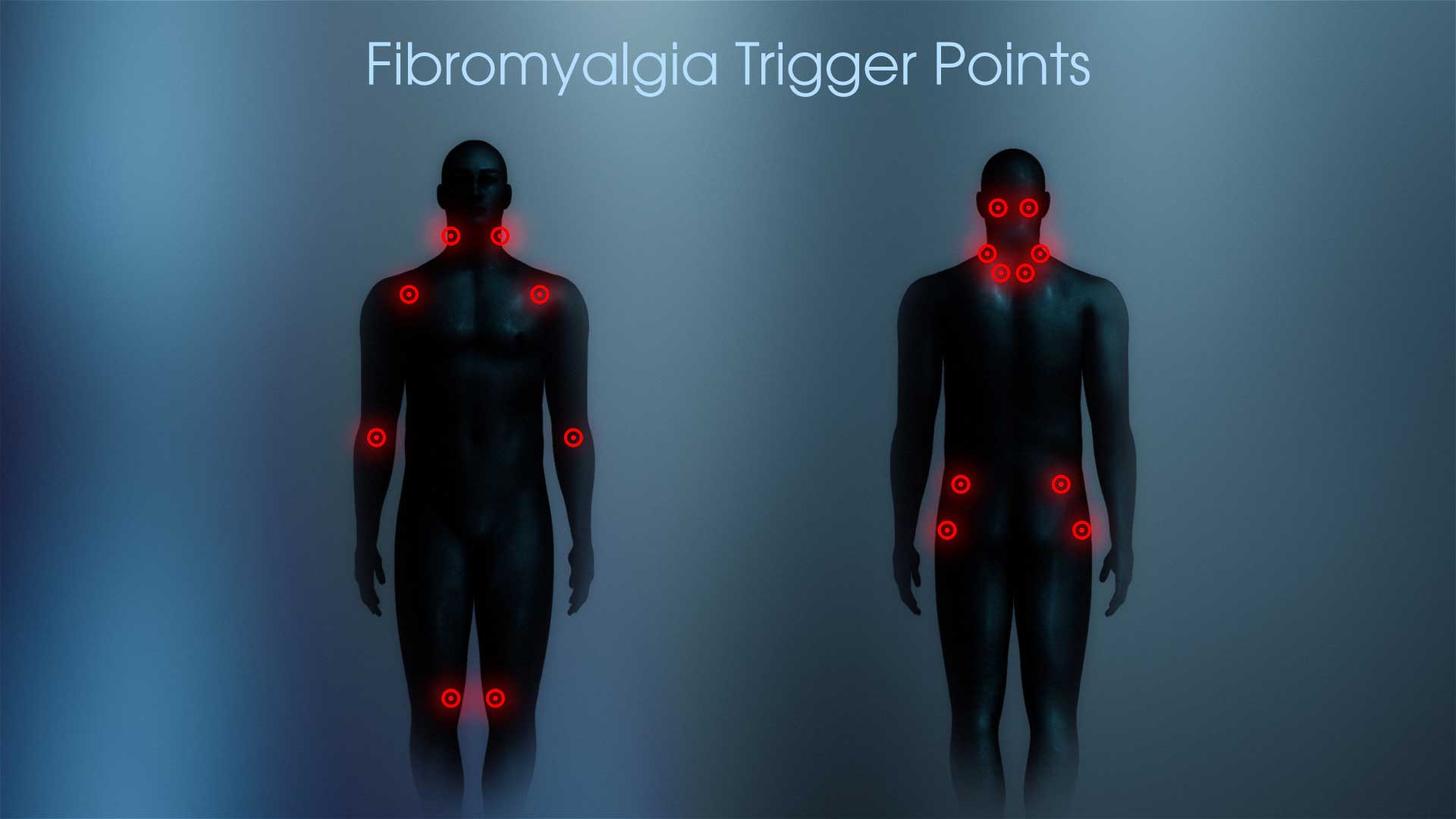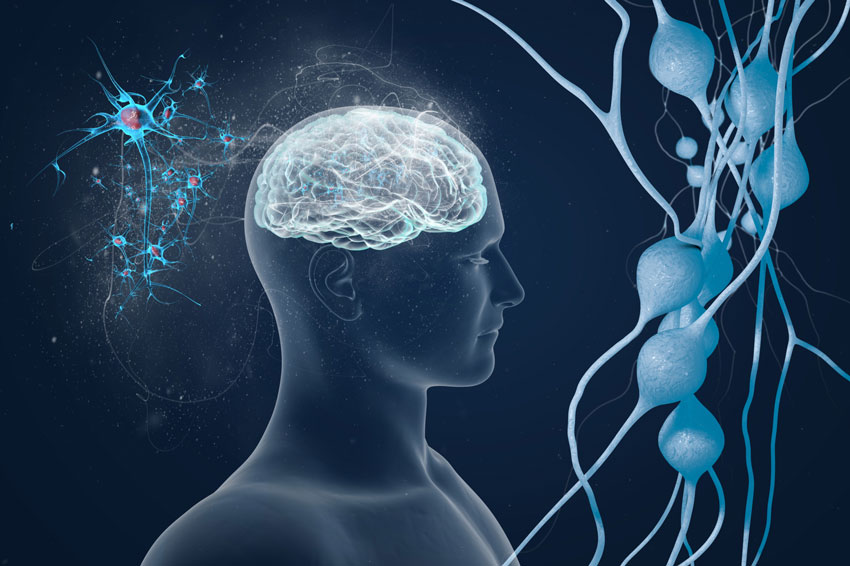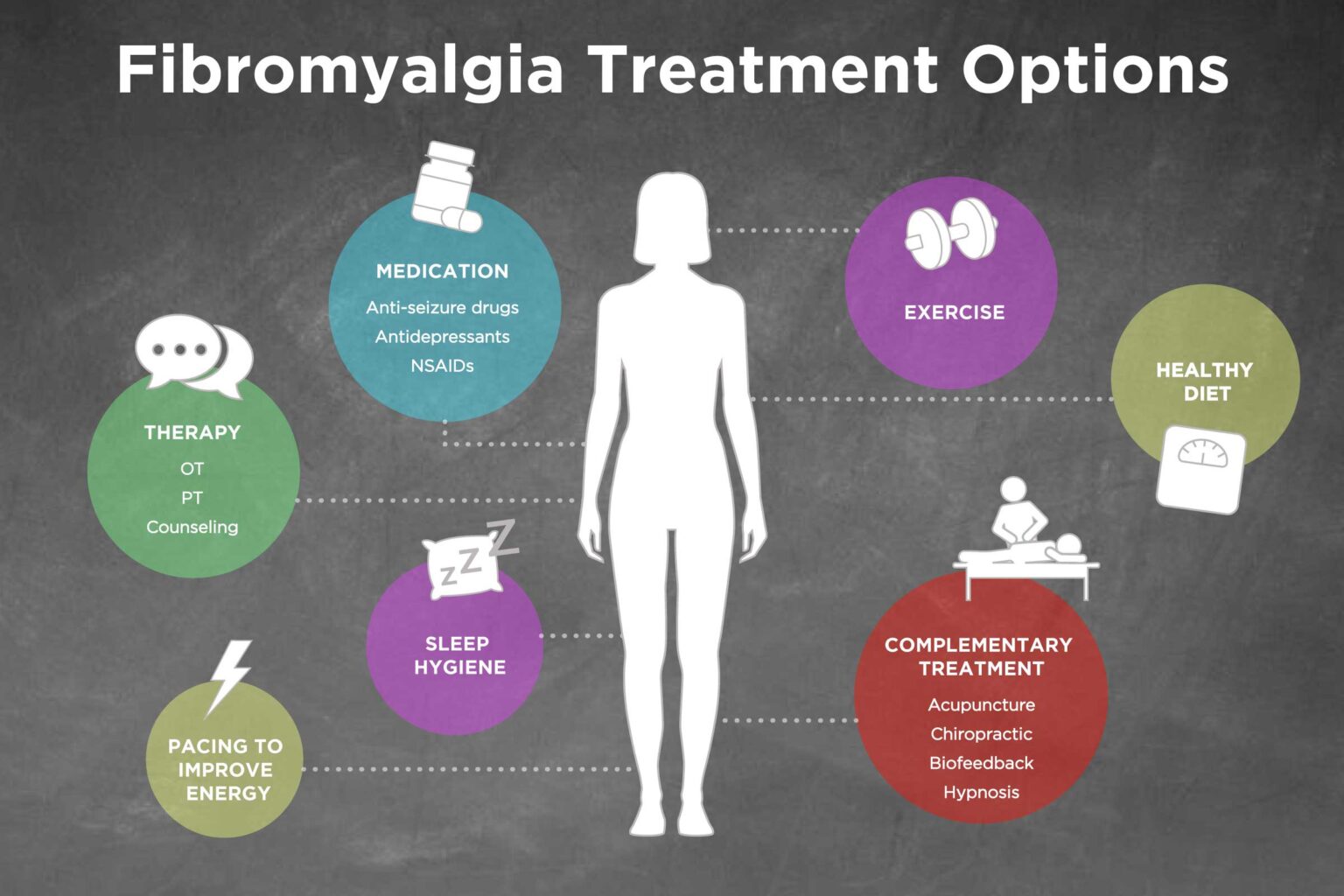FIBROMYALGIA
Fibromyalgia is a chronic syndrome that causes widespread musculoskeletal pain and mental distress. The pain is accompanied by fatigue, joint pain, sleep, memory, and mood issues.
This is a long-term (chronic) illness. Although there is no cure for fibromyalgia, it can be managed by a combination of medication, exercise, managing your stress, and healthy habits.
Fibromyalgia is often misdiagnosed as the symptoms mimic those with other medical conditions. There is no specific test to detect fibromyalgia.

CAUSE OF FIBROMYALGIA
Fibromyalgia is caused by many factors like hereditary (runs in family), physical (like accident) or emotional events (like stress) and environmental (infection or illness). Women are more at risk of developing fibromyalgia than men.
The disorder is manifested after a series of stressful events that may be emotional like a traumatic life event, physical like an accident), or medical like certain infections. Some medical conditions like chronic pain of rheumatoid arthritis, systemic lupus erythematosus, or autoimmune diseases can also trigger the development of fibromyalgia.
The changes are observed due to repeated nerve stimulation that causes the brain and spinal cord to release an abnormal amount of certain chemicals in the brain which are responsible to signal pain.
The threshold at which pain stimuli or discomfort is triggered is lower in fibromyalgia. Due to which pain is felt more intense as the pain is amplified because of the abnormalities in the central nervous system and pain responses. Thus, pain which is moderate to someone is amplified in people suffering from fibromyalgia.

SYMPTOMS OF FIBROMYALGIA
As the symptoms of fibromyalgia are similar to other medical conditions it is often misdiagnosed. The foremost symptoms of fibromyalgia are chronic widespread pain and tenderness. The pain spreads all across the body in different regions that might overlap, referred to as areas of tenderness (or trigger points).
Primary symptoms of fibromyalgia are:
- Chronic widespread pain – The pain is often described as a dull ache that would last for at least 3 months.
- Fatigue – People complain waking up feeling tired even after a long period of sleep. It also leads to chronic fatigue syndrome leading to stiffness in joints and muscles.
- Sleep Disorder – Sleep is disrupted due to pain multiple times at night. You might also experience restless leg syndrome and sleep apnea.
- Cognitive Difficulties – Constant chronic pain impairs ability to focus, difficulty in paying attention, decrease in level of concentration and problems with memory referred to as “fibro fog”
- Irritable Bowel Syndrome (IBS)
- Anxiety, nausea and depression due to constant pain in various regions
- Headaches like migraine causing sensitivity to bright lights, loud noises, heat and cold.
- Numbness or tingling sensation in the limbs
- Pelvic and urinary disorders
- Weight Gain
Symptoms of fibromyalgia often get triggered due to physical or emotional trauma like an illness, surgery, infection, a stressful life event like injury. The pain originates from the brain, specifically from the central nervous system.
As women are more prone to fibromyalgia than men, the condition might worsen due to onset of menopause. People suffering from rheumatoid arthritis, lupus, or spinal arthritis referred to as ankylosing spondylitis are at higher risk of developing fibromyalgia.
DIAGNOSIS OF FIBROMYALGIA
There is no specific test to detect fibromyalgia. However, doctors would recommend blood tests to rule out the possibility of other medical conditions like underactive thyroid, different types of arthritis, and lupus.
Once other medical conditions are ruled out, doctors would use a two-part scoring system. This would measure the areas of pain and to what extent the symptoms affect your daily life. Based on this diagnosis the treatment regime would be prescribed to manage the pain and reduce difficulties in daily activities.

TREATMENT OF FIBROMYALGIA
Physicians would follow a regime that would work on the symptoms of fibromyalgia as there is no cure to the condition. Your physician would combine medication, self care and lifestyle changes.
Medications would relieve pain and facilitate better sleep. Physical and occupational therapies would improve your muscle strength and reduce stress on your body. Exercise and stress-reduction techniques would make you feel better, both mentally and physically.
- Medication – The goal is to improve the quality of life by reducing pain and difficulty to perform daily activities.
- Painkillers – Mild pain can be reduced with over-the-counter medicines like ibuprofen (Advil) or acetaminophen (Tylenol). If the OTC medicines do not provide relief in pain doctors would prescribe other painkillers like opioids (tramadol) which are helpful in some cases. Opioids or narcotics are used in small doses as they are addictive. Most physicians would avoid using the same.
- Antidepressants – These help in providing relief in pain and fatigue symptoms. These medications affect the secretion of serotonin and the norepinephrine neurotransmitters which help in reducing the pain. Commonly used antidepressants Duloxetine (Cymbalta) and milnacipran (Savella). These also promote sleep.
- Anticonvulsants – These medicines help in calming the nerves that reduce burning, stabbing and shooting pain. They also obstruct the overactive transmission of pain signals that are sent from damaged nerves (neuropathy) or overly sensitized nerves to the brain. Examples are Gabapentin (Neurontin) and pregabalin (Lyrica).
- Natural Remedies – These are used along with medication or if medicines do not work. Therapies that help in reducing pain and effects of fibromyalgia.
- Physical therapy – These therapies help in increasing strength, flexibility and stamina of the body. A combination of resistance training, aerobic exercise and strengthening exercise would help in reducing pain, stiffness, tenderness and sleep disturbances. It is important to maintain the consistency of the exercise regime if it is providing relief in symptoms of fibromyalgia.
- Acupuncture – The number of sessions of acupuncture would help provide relief in pain and stiffness as well as improve quality of life.
- Counseling – Cognitive behavioral therapy helps in reframing your thoughts and change in your behaviors. Reducing stress would help reduce the pain and other symptoms related to fibromyalgia. These also help in improving sleep, reduce pain and fatigue.
- Healthy Diet – Diet is a major part of the treatment regime. The diet would include fruits & vegetables, whole grains, low-fat dairy, healthy oils, legumes, and low-fat protein available in fish and chicken. Dietary changes would help in easing the symptoms of fibromyalgia. Doctors recommend the diet should be rich in vitamin D, magnesium and antioxidants.
- Yoga and massage – These therapies help in controlling your heart rate, relaxes your muscles, improves the range of motion of your joints and increases the production of body’s natural painkillers. These help in reducing the pain and its related symptoms like stress, anxiety and depression.
Fibromyalgia is not completely cured however management of pain helps in reducing the symptoms of fibromyalgia. The treatment regime is designed keeping the symptoms in focus.
OUTLOOK
Many patients suffering from fibromyalgia experience long-term widespread pain. With the diagnosis patients discover their overall well-being as well as their pain improves. The pain drops to moderate levels with the treatments discussed above. However, some patients experience a dramatic reduction in pain and stress due to changes in their lifestyle.
But, these patients remain at risk for worsening of their symptoms in the future. Efforts should be maintained to follow a healthy lifestyle, sleep hygiene, continue exercise, and stress management.
If you or anyone you know is suffering from fibromyalgia, our expert providers at Specialty Care Clinics will take care of your health and help you recover.
Call us on 469-545-9983 to book an appointment with Dr. Masel.
